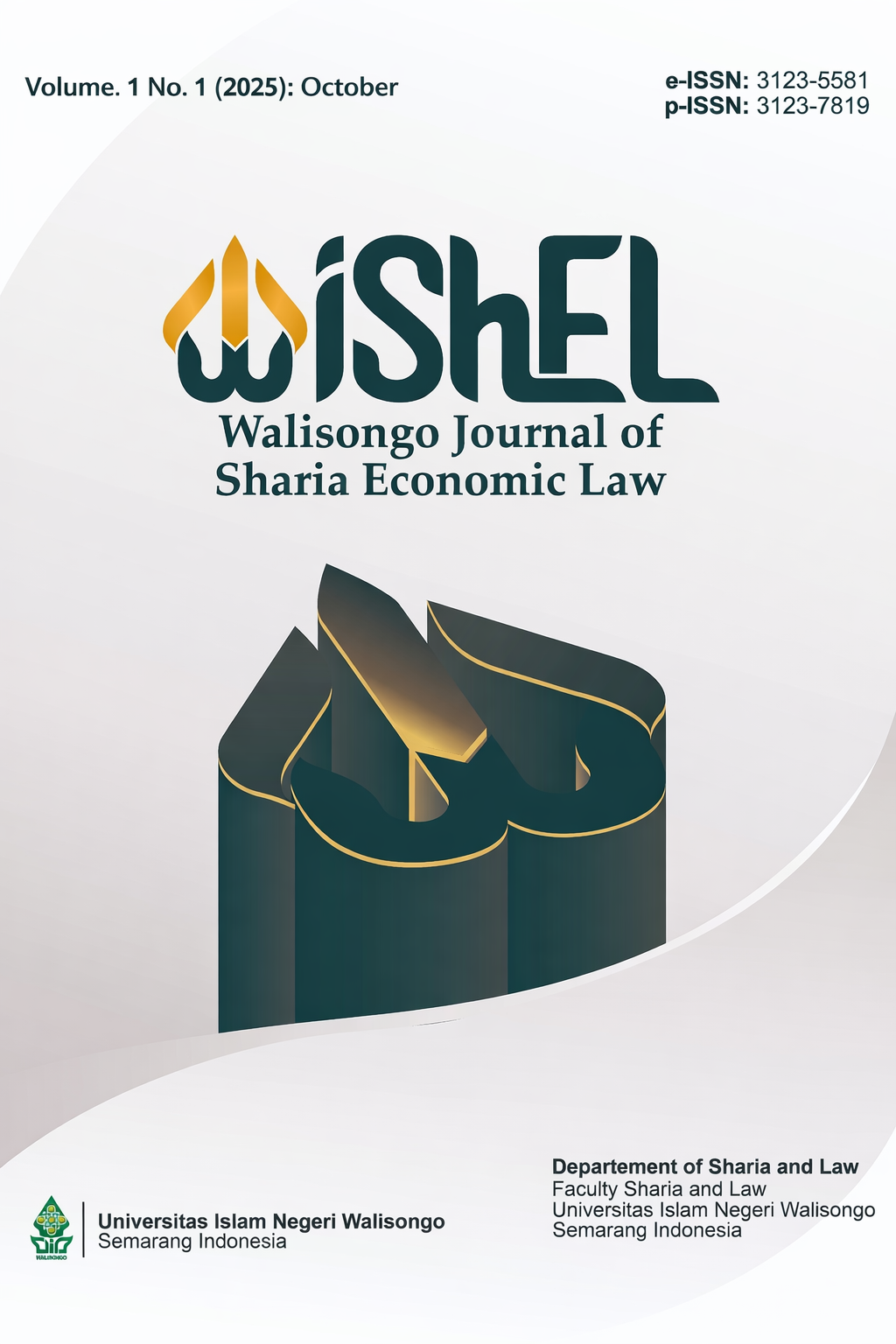Review of Sharia Economic Law on Sharia Venture Capital Financing in the Digital Economy Sector
DOI:
https://doi.org/10.21580/wishel.2025.1.1.29295Keywords:
Sharia venture capital, Digital economy, Sharia economic law, StartupAbstract
Abstract
The rapid growth of the digital economy in Indonesia has created an increasingly urgent need for innovative financing models that are in line with sharia principles. Sharia venture capital, based on the principles of Musyarakah and Mudharabah contracts, offers a fair and riba-free financing alternative for digital startup s. This study aims to analyze how sharia venture capital regulations are applied in Indonesia's digital economy sector and identify the challenges faced by startup s in accessing sharia-based financing. The method used in this study is a qualitative approach with legal-normative analysis, involving a review of relevant literature on existing regulations, such as the Financial Services Authority (OJK) Regulation No. 35/POJK.05/2015 and the DSN-MUI Fatwa, as well as previous studies. The results of the study show that although regulations are in place, the implementation of sharia venture capital still faces various obstacles, such as low sharia financial literacy, limited applicable legal standards, and high risks for startup s. This study concludes that to optimize the potential of sharia venture capital in supporting the digital economy, it is necessary to strengthen regulations, improve sharia financial literacy, and develop better human resource (HR) capacity.
Downloads
Downloads
Published
How to Cite
Issue
Section
License
Copyright (c) 2025 WiShEL: Walisongo Journal of Sharia Economic Law

This work is licensed under a Creative Commons Attribution-NonCommercial 4.0 International License.
This work is licensed under a Creative Commons Attribution-NonCommercial 4.0 International License (CC BY-NC 4.0). All writings published in this journal are personal views of the author and do not represent the views of this journal and the author’s affiliated institutions.











